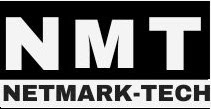1: Introduction to Healthy Meal Prep
In today's fast-paced world, where time seems to be the
scarcest resource, maintaining a healthy lifestyle can be a challenge. This is
where the art of meal preparation, commonly known as meal prep, comes into
play. In the first section of our blog series, "Unlocking Success:
Essential Healthy Meal Prep Tips for Beginners," we will introduce you to
the fundamental concept of healthy meal prep and why it's a game-changer for
those seeking a balanced and nutritious way of living.
The Importance of
Meal Prep for a Healthy Lifestyle:
Healthy meal prep isn't just about convenience; it's a
strategic approach to ensure that you consistently make nutritious food
choices. In our fast-paced lives, finding the time and motivation to cook
fresh, wholesome meals every day can be daunting. Meal prep simplifies this
process by allowing you to plan, prepare, and store your meals in advance. This
proactive approach empowers you to make healthier food choices, control portion
sizes, and stay on track with your dietary goals.
In this blog post, we will delve into the foundations of
successful meal prep for beginners. We'll cover the essential aspects that you
need to understand to get started on your meal prep journey. From meal planning
and kitchen tools to batch cooking and proper storage techniques, we've got you
covered. By the end of this series, you'll be equipped with the knowledge and
confidence to embrace meal prep as a core component of your healthy lifestyle.
The Benefits of
Successful Meal Prepping:
The benefits of meal prep extend far beyond just saving
time. It empowers you to take control of your diet, leading to improved health
outcomes. Some of the advantages you can expect to gain from successful meal
prepping include:
Nutritional Control:
Meal prep allows you to plan balanced, nutritious meals, ensuring you meet your
dietary goals.
Time Savings:
Preparing meals in advance frees up time during the week, reducing the
temptation to opt for fast food or unhealthy options.
Cost-Efficiency: Buying
ingredients in bulk and planning your meals can lead to significant cost
savings over time.
Portion Management:
With pre-portioned meals, you're less likely to overeat, aiding in weight
management.
Reduced Stress:
Meal prep reduces the daily mealtime rush, reducing stress and promoting a more
relaxed lifestyle.
In this blog series, we will guide you through the process
of adopting healthy meal prep habits, making it easier than ever to achieve
your wellness goals.
2. Planning Your Meals
Meal planning is the cornerstone of successful and sustainable healthy eating.
In the second installment of our blog series, "Unlocking Success:
Essential Healthy Meal Prep Tips for Beginners," we'll delve into the
critical aspect of planning your meals. Whether you're new to meal prep or
looking to fine-tune your approach, understanding the significance of meal
planning is essential for achieving your dietary goals.
The Importance of Meal Planning for Beginners:
For beginners embarking on their meal prep journey, meal planning is a crucial
first step. It provides structure to your eating habits, helping you make
informed choices about what goes into your body. Meal planning offers several
benefits:
Dietary Control: Planning your meals
enables you to create balanced, nutritious menus that align with your health
objectives, whether it's weight loss, muscle gain, or simply maintaining good
health.
Reduced Food Waste: By
strategizing your meals in advance, you can minimize food waste by buying only
what you need and using ingredients efficiently.
Time Efficiency:
Meal planning saves time during the week, as you've already decided what to
cook and have the necessary ingredients on hand.
Stress Reduction:
Knowing what's for dinner eliminates the daily stress of deciding what to eat,
especially after a long day.
Tips on Creating a
Meal Plan:
In this section of the blog post, we'll provide practical advice on crafting a
meal plan tailored to your dietary goals and lifestyle. We'll cover:
Setting Objectives: How to define
your dietary goals, whether it's weight management, muscle building, or a
specific dietary restriction.
Balanced Nutrition:
Tips for ensuring your meal plan includes a variety of nutrients and food
groups to support overall health.
Meal Frequency: Discussing
the benefits of multiple smaller meals versus traditional three-meal plans.
How to Make a
Shopping List Based on Your Meal Plan:
Creating a shopping list that aligns with your meal plan is essential for
efficient and cost-effective grocery shopping.
Reviewing Recipes: How to review
your chosen recipes and compile a list of necessary ingredients.
Organizing Your List:
Tips for organizing your shopping list by food categories or store
sections.
Staying on Budget:
Strategies to stick to your budget while grocery shopping.
This blog post will provide a comprehensive understanding of
meal planning for beginners, helping you take the first steps toward a
healthier and more organized approach to your meals.
3: Essential Kitchen
Tools and Supplies
Having the right kitchen tools and equipment can make a world of difference in
your meal prep journey. In this segment of our blog series, "Unlocking
Success: Essential Healthy Meal Prep Tips for Beginners," we will explore
the essential kitchen tools and supplies that will streamline your meal
preparation process, making it efficient and enjoyable.
List of Essential Kitchen Tools and
Equipment:
Cutting Board: A sturdy cutting
board is fundamental for chopping, slicing, and dicing ingredients safely and
cleanly.
Quality Knives:
Invest in a set of sharp knives, including a chef's knife, paring knife, and
serrated knife, for precise cutting.
Measuring Cups and
Spoons: These ensure accuracy when portioning ingredients and following
recipes.
Mixing Bowls: Multiple
mixing bowls in varying sizes are indispensable for combining ingredients and
marinating.
Food Processor or
Blender: Ideal for making sauces, purees, and smoothies.
Non-Stick Cookware:
Quality non-stick pans and pots facilitate cooking with less oil or butter.
Baking Sheets: Useful
for roasting vegetables, baking proteins, and preparing one-pan meals.
Slow Cooker or
Instant Pot: Saves time by slow-cooking or pressure-cooking meals with
minimal effort.
Storage Containers:
Invest in a variety of airtight containers for storing prepped ingredients and
meals.
Kitchen Scale:
Helps in precise measurement of ingredients for dietary accuracy.
Explanation of How
Each Item Is Used:
Cutting Board and Knives: These are the foundation of meal prep, allowing
you to chop, slice, and dice ingredients to the desired size.
Measuring Cups and
Spoons: Ensures accurate portioning of ingredients for consistent recipes.
Mixing Bowls:
Vital for combining ingredients, marinating proteins, and creating dressings.
Food Processor or
Blender: Streamlines the process of blending, pureeing, or chopping
ingredients.
Non-Stick Cookware: Enables
cooking with less oil, reducing calorie intake.
Baking Sheets: Essential
for roasting vegetables, baking proteins, and preparing sheet pan meals.
Slow Cooker or
Instant Pot: Time-saving tools for hands-off cooking.
Storage Containers: Keep
prepped ingredients fresh and organized.
Kitchen Scale: Useful
for precise measurement, especially for those following strict dietary plans.
Product Recommendations and Keywords:
4: Preparing and Cooking in Batches
Batch cooking is a game-changer when it comes to healthy
meal prep, offering a streamlined and efficient approach to preparing and
cooking multiple meals at once. In this segment of our blog series,
"Unlocking Success: Essential Healthy Meal Prep Tips for Beginners,"
we will delve into the concept of batch cooking, its manifold benefits, and
provide beginners with a step-by-step guide to master this invaluable skill.
The Concept of Batch
Cooking and Its Benefits:
Batch cooking is the process of preparing and cooking larger
quantities of food in a single session, which can then be portioned and stored
for later consumption. The benefits are far-reaching and include:
Time Efficiency:
Preparing several meals at once minimizes the time spent in the kitchen during
the week.
Consistency: Ensures
that you consistently have healthy, home-cooked meals on hand, reducing the
temptation to order takeout or eat unhealthy convenience foods.
Cost Savings: Buying
ingredients in bulk for batch cooking can lead to significant savings over
time.
Reduced Food Waste:
Efficient use of ingredients and portioning reduces food waste.
Step-by-Step Guide on
Batch Cooking for Beginners:
In this section of the blog post, we will provide a
comprehensive guide for beginners, including:
Selecting Recipes: Choosing
recipes that are suitable for batch cooking and align with your dietary goals.
Meal Planning: Creating
a meal plan for the week that incorporates batch-cooked meals.
Ingredient
Preparation: Tips on efficiently preparing ingredients, such as chopping
vegetables, marinating proteins, and prepping grains.
Cooking Techniques: Explaining
various cooking methods, such as baking, roasting, slow cooking, and simmering,
that are well-suited for batch cooking.
Portioning and
Storage: How to portion the cooked meals and properly store them to
maintain freshness.
Time-Saving Tips and
Techniques:
Efficiency is key to successful batch cooking. We'll share
time-saving tips and techniques, such as organizing your workflow, using
kitchen appliances strategically, and employing multitasking skills to maximize
productivity during your batch cooking sessions.
5: Storing and Reheating Your Meals
Once you've invested time and effort in healthy meal prep,
the next crucial step is storing and reheating your meals correctly. In this
installment of our blog series, "Unlocking Success: Essential Healthy Meal
Prep Tips for Beginners," we will emphasize the importance of proper
storage, provide tips for storing various types of meals, and offer safe
reheating methods to ensure your prepped meals remain fresh and safe to
consume.
Importance of Proper
Storage to Maintain Freshness:
Proper storage is not only essential for maintaining the
taste and quality of your meals but also for food safety. This section will
emphasize:
Preventing Food
Spoilage: Proper storage techniques prevent food from spoiling prematurely,
reducing food waste.
Preserving Nutrient
Content: Correct storage methods help retain the nutrient content of your
meals.
Minimizing Health
Risks: Ensuring your meals are stored safely helps prevent foodborne
illnesses.
Tips for Storing Different Types of Meals:
Different types of meals require different storage
approaches. We will provide practical advice on storing:
Salads: Tips to
keep salads fresh, including separating wet ingredients from greens and using
airtight containers.
Soups and Stews:
Safe methods for storing liquid-based dishes to prevent leakage and freezer
burn.
Proteins (Meat, Fish,
Tofu): How to store proteins to maintain their texture and flavor,
including marinating and freezing techniques.
Grains and Pasta:
Best practices for storing cooked grains and pasta to prevent them from
becoming mushy or stale.
Safe Reheating
Methods and Precautions:
Reheating your prepped meals safely is as important as
storing them correctly. We will cover:
Microwave Reheating: Guidelines for reheating in the microwave, including stirring and checking the internal temperature.
Stovetop Reheating:
How to reheat meals on the stovetop to maintain texture and flavor.
Oven Reheating:
Safe methods for reheating baked dishes in the oven.
Thawing Frozen Meals:
Tips for safely thawing frozen meals in advance of reheating.
In conclusion,
"Unlocking Success: Essential Healthy Meal Prep Tips for Beginners"
offers a comprehensive guide to mastering the art of meal prep. It equips
beginners with the knowledge and skills needed to plan, prepare, and store
nutritious meals efficiently. By emphasizing the importance of meal planning,
providing insights into essential kitchen tools, teaching batch cooking
techniques, and highlighting proper storage and reheating practices, this blog
series empowers individuals to seamlessly incorporate healthy eating into their
lives. With these essential tips, beginners can unlock a healthier, more
organized, and time-saving approach to their dietary journey, setting the stage
for long-term success in maintaining a balanced lifestyle.









.jpg)
.jpg)






0 Comments